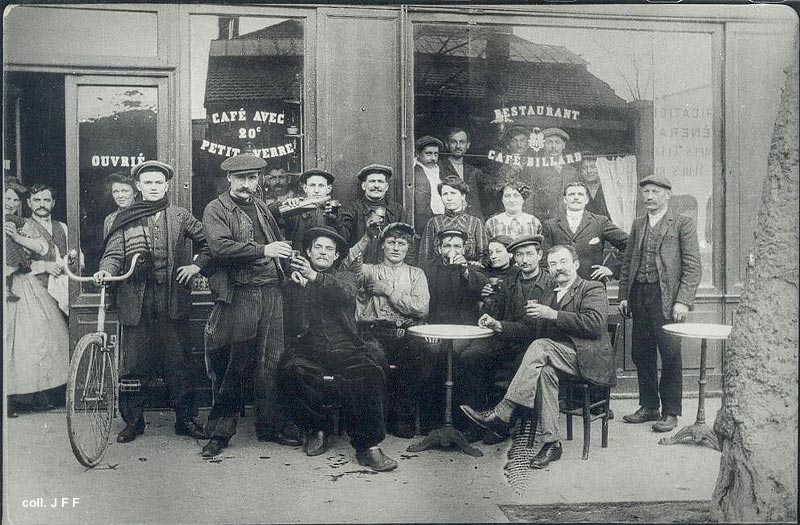Anywhere versus somewhere.
Contactable versus findable.
Interchangeable versus valuable.
Stranger versus friend.
This analogue skill first emerged for me from asking a simple question. If you have left your phone at home, how can people find you?
As usual in the Analogue Skills project, I start by asking how did people find us before the modern digital solution? For certain, it was harder to find people than just calling and messaging them. But it was by no means impossible and people still managed to get on with their lives. So how did they do it, what might have been the benefit of this less-digital approach and what can we learn?
One answer was to be a frequenter of certain places – a place of work, a cafe, a pub, a shop, a place of workshop, a club. In other words, become a regular. If you weren’t at home, someone could probably reach you at one of your regular haunts. Such places are nodes of a kind of social network that has existed for millennia.
The network also served to put people in touch with each other even if they didn’t know one another. For example, someone looking for a particular tradesperson could ask in local shops or bars for recommendations.
Of course, regulars still exist. As I type, two tradespeople have just arrived at the tea van and ask after John. Oh John, he’s not around. He’s got family problems. He’ll be back at the end of the week (hopefully John et al are re-united soon).
But I see this in-person contact between regulars as a dying phenomenon and I think there are two factors. The first is the aspiration of the digital nomad and the second is a sort of withdrawal from the public realm.
The aspiration of the digital nomad is that with digital device in hand, I can be anywhere at any time doing anything with anyone. With the potential to be anywhere why would I chose to limit my options to always showing up at the same place?
The potential of the digital nomad goes hand-in-hand with a withdrawal from the public realm. Now that my phone allows me to do so much from anywhere, I may as well do it from home. I can do my shopping from the kitchen. I can take work calls from the sofa. I can message my friends on the toilet…
Trends in the workplace reinforce both the aspiration to digital nomadism and withdrawal from the public realm. The trend away from employment to working with sole-traders and outsourcing to small organisations has created many more people running a business form a mobile phone while working on the road. For some this is a freedom, but for others it is an erosion of the social ties of the workplace. The workplace is after-all a sort of public realm.
While the Covid 19 pandemic has necessarily hastened the retreat from the public realm, it has shown many organisations how they can successfully work remotely, and it seems very unlikely that many businesses will return to co-located operations now that they have seen how much money they can save when everyone stays at home.
But what happens when we stop being regulars? Much more than it being harder to find you, I think we can see a reduction in so many behaviour that are good for individuals and society: interaction, company, trustworthiness, reciprocity.
I have felt this loss sharply myself. For three years people new where to find me on a Tuesday night. I would be teaching swing dancing in the backroom of a pub in North London, and then dancing to the band afterwards. This regular appointment became the highlight of social week. Familiar faces became friends, but we never exchanged numbers because we’d just see each other the next week. Work opportunities emerged from chance interactions. Birthdays and festivals were celebrated with the crowd of regulars. Living in a new city, and without having reestablished the regular spot, I feel that loss of community, and in particular a loss of belonging.
Become a regular again
For now at least, the nodes of the analogue social network – those public places where we can show up and be regulars – still exist, although the Covid-19 pandemic will have put their survival under threat. So use them while you can.
Is there a place where you can regularly go? A regular time and place to socialise with friends. A regular place to do sport, play music or some other hobby? A regular place where you can do your shopping and talk to other people? A regular place where you can chat with other parents? A regular place of workship? A regular place to work?
All of these are places where people can find you when your phone is off, but they offer much more. Become findable and you will not only find other people, but also community, friendship, reciprocity and trust.
What is the Analogue Skills project?
The Analogue Skills Project is my attempt to gather together and keep safe less digital ways of doing things in case we need them again. My aim is to discover/redicover ways of being, feeling and acting that might serve us better.
Read more about the project here and check out my latest posts:


Leave a Reply